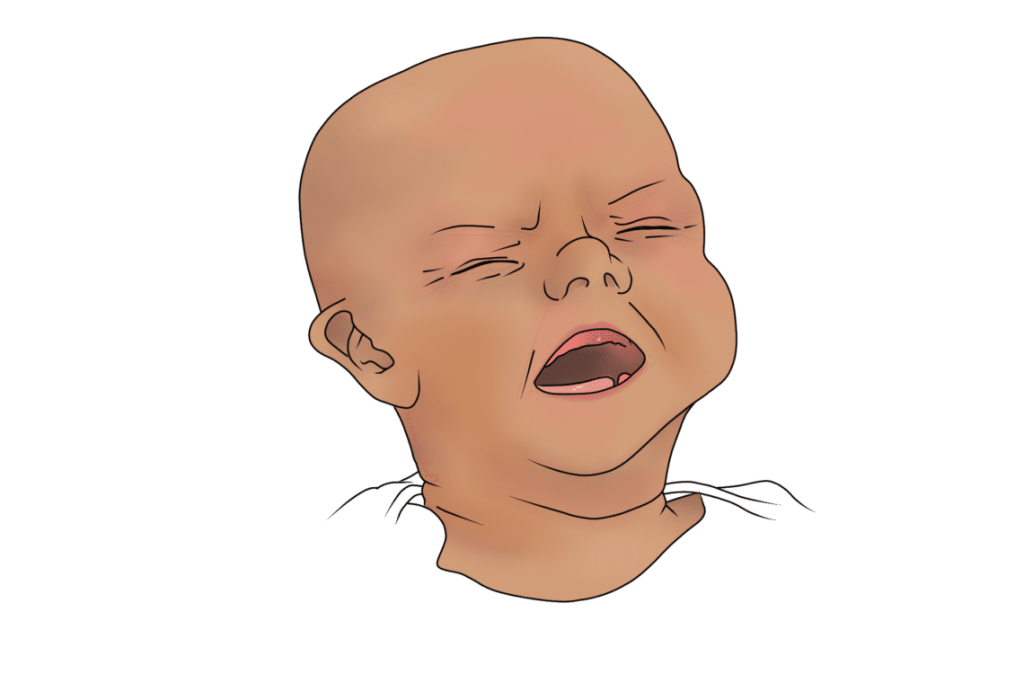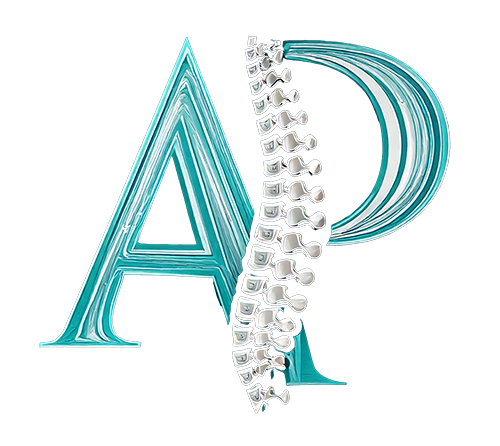Colic (Prolonged Infant Crying)

Colic is a difficult thing to pin down: it’s not a formal diagnosis. A newborn may be described as “colicky” if they cry for a total of three hours (or more) per day, three days a week.
Causes of Colic
Possible causes of colic are generally considered to be digestive. Therefore there may be overlap with other digestive issues, such as reflux.
It makes sense that growing pains could also be a cause of prolonged crying, and no bones are under more dramatic change than the bones of the skull in the first six months. The brain grows tremendously in infancy, reaching 80% of its final size by the age of three. We’ve discussed plagiocephaly and the red flags for craniosynostosis before, which may have relevance here.
More Than Colic?
If these symptoms continue for more than four months, other potential causes need to be considered. Young babies have few ways to communicate distress other than crying, so it helps for us to keep an open mind when working with them. Be aware of:
Infections, including persistent nappy rash
Signs of meningitis
Wind and constipation
Unusual vomiting (green stained vomit or especially forceful vomiting)
Symptoms of testicular torsion in boys
Can Osteopathy Help?
We’ve posted before about parents who found cranial osteopathy to really help their babies’ symptoms. Cranial osteopathy is a very gentle form of the therapy, using light pressure and soft movement to encourage movement through the skull. As babies’ skulls are not completely fused, they can respond very quickly to small changes.
You can read more about cranial osteopathy here.
With regards to potential digestive causes, an osteopath’s approach to a baby is not too dissimilar to an adult with digestive issues. Whenever the digestive system is upset, especially by reflux or other painful conditions, the diaphragm often reacts. This broad muscle runs right through the body, giving it the potential to affect breathing, the mid and lower back, or further aggravate the abdomen. The diaphragm is also reactive to stress, playing a big role in raising your shoulders and making your breathing shallow.
Gentle treatment to the diaphragm can help to reduce its negative effects and potentially improve breathing and symptoms of reflux. Young babies may take longer to respond when reflux is involved, as their immature digestive systems, liquid diets, and increased time spent lying down are all potential aggravating factors. However work to reduce symptoms and discomfort may lead to a reduction in crying.
Osteopathy for Parents or Carers
The newborn period can be tough, especially if your baby is colicky. The sudden changes in demand on your body, especially if you find that rocking your baby is the best way to soothe them, can take their toll. Osteopathy can help with those aches and pains and help to break the cycles of tension that make your neck and shoulders tighter.

